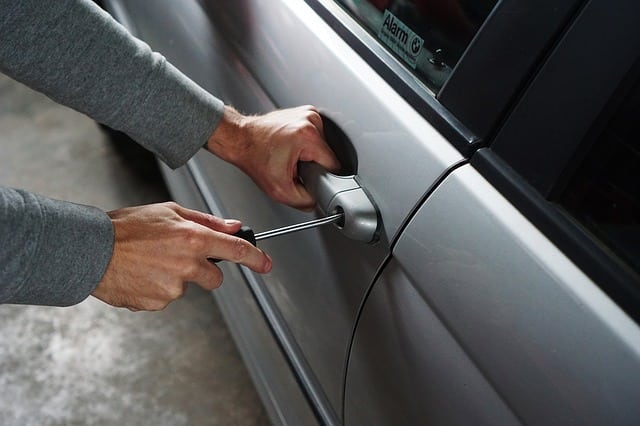Owning a vehicle is advantageous for one’s daily living, as it allows you to reach short and long distances with relative ease. However, with the benefits of car ownership comes responsibilities to protect and maintain your vehicle as well. Upon purchasing a vehicle, car insurance should always come next.
The Importance Of Car Insurance
Car, vehicle, or auto insurance is a contract purchased by a vehicle owner from an insurance company which offers protection and compensation against financial losses in the event of vehicular theft or accident.
Car insurance is your biggest protection down the road. In case you’re at fault during an accident, auto insurance also guarantees that you attend to your responsibilities. For instance, obtaining a cheap SR22 Insurance proves that you have car insurance despite traffic violations.
Whether you’re a first-time car owner or have owned multiple cars before, you should always be educated about the SR22 insurance by asking the following to your insurance agent:
- Do I need one if I don’t own a car?
As strange as it might sound, it’s completely fine to ask your insurance agent if you need SR22 insurance without a vehicle in the first place. Nevertheless, you’ll still have to declare your financial responsibility through obtaining SR22 insurance. Also, this will serve as your proof to have your license reinstated. This type of SR22 insurance is known as an operator’s certificate or non-owners SR22 insurance.
Asking this question is essential to know your coverage and its costs, as the terms and requirements may vary from state to state. In some regions, non-owner SR22 insurance covers financial liability for the other party.
Some insurance companies might not offer non-owner SR22 insurance as well. It’s better if you choose an insurance company that regularly handles high-risk auto insurance policies.
- Are there any classifications of SR22 insurance?
Except for non-owner SR22 insurance, there are other types of SR22 insurance that your insurance company might recommend. Before signing up for auto insurance, ask your agent about other SR22 insurance classifications and how their policies work. There are three classifications of SR22 insurance that companies can offer at maximum:
- Operator: An operator’s certificate is ideal for drivers who don’t own a vehicle, but only rent or borrow one.
- Owner: On the other hand, an owner’s form is for those who officially own a vehicle. You should discuss this further with your agent as the type of your automobile is an important factor of your insurance.
- Operator/owner: This insurance is a hybrid of both types of insurance, which is applicable for drivers who own a vehicle and borrows or rents one occasionally. People who frequently travel and drive usually fall in this category.
- What if my insurance company doesn’t offer SR22 coverage?
As mentioned earlier, some insurance companies don’t have extensive insurance coverage plans, including the absence of SR22 insurance. If you already have insurance settled with your insurance provider, but they don’t offer the addition of an SR22, you might have to buy a policy from another company that offers SR22 risks.
Moreover, shopping around for your SR22 coverage is an excellent strategy that most people tend to forget as they immediately sign up with their original insurance provider. However, the company that offered a lower rate of insurance might not offer another discount for SR22 coverage.
After committing a traffic violation, shop around your city for auto insurances with better rates. If your current insurer declines to renew your policy due to violation and calls off your coverage, then you have no choice but to find another insurance policy covering an SR22 in other providers.
- How will my insurance costs change?
Signing up into SR22 insurance means that your insurance coverage will broaden and your costs might increase, depending on your insurance company and location.
Generally, filing an SR22 policy without having any violations yet doesn’t increase your insurance premiums. Take note that your age, vehicle, location, and driving record are the primary factors that will determine your insurance rates. Obtaining SR22 insurance can cost from USD$5 to USD$20 for the fee, and the certificate starts at $200, depending on your insurer and location.
In contrast, signing up for SR22 with any violation such as driving under the influence (DUI), can gravely affect your insurance costs. Filing for an SR22 certificate itself can cost between USD$300 to USD$800. Certainly, you’ll have to pay higher premiums as it includes liability coverage. Some insurers also cancel the good driver discount from these offenders for ten years after conviction, to prevent them from benefitting from the discount.
- What will happen when my SR22 policy ends?
To reinstate your license in its expected date, you should make sure that your SR22 is maintained. During your SR22 filing, your insurance provider will inform you about your SR22 terms and guidelines, including how long the policy will last and what you’ll have to do in its expiration.
In most cases, you should possess SR22 insurance at least three years after license suspension brought on by violations. If your policy is cancelled, you must immediately obtain a new one. Interruption of SR22 insurance will result in delayed removal of SR22 status and license reinstatement.
Bottom Line
Offending traffic regulations is a serious issue amongst many drivers, but following the insurance process can help you get back on track. During these pressing moments, obtaining SR22 insurance is your best solution. Before signing up for one, keep yourself informed through asking these questions to your agent, as terms differ from provider to provider.







